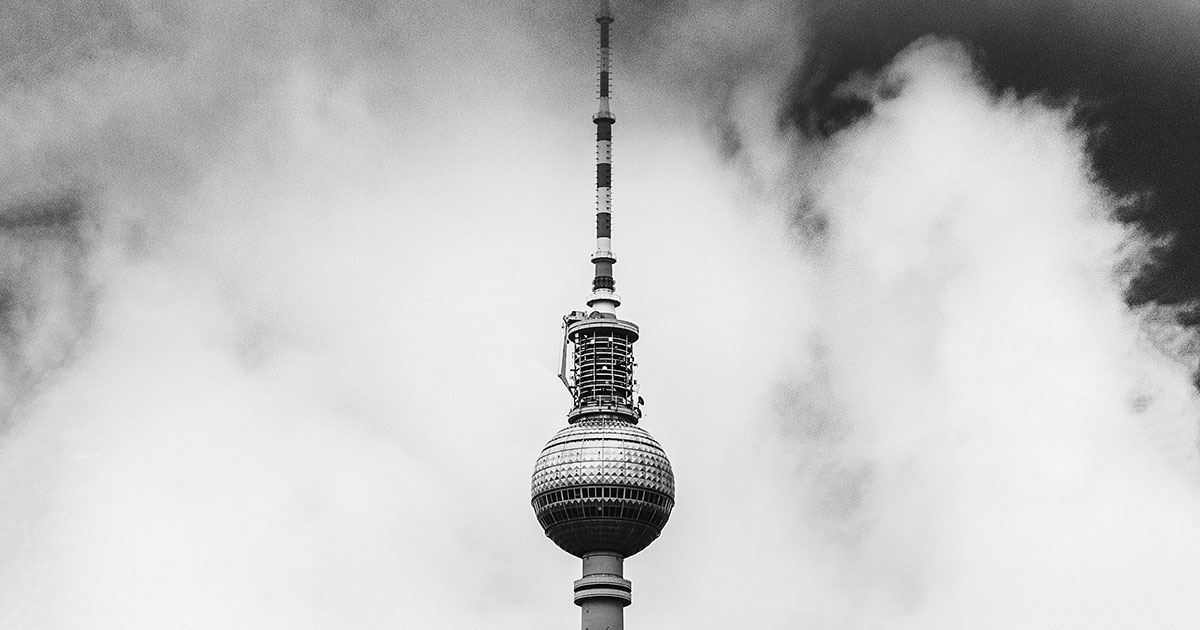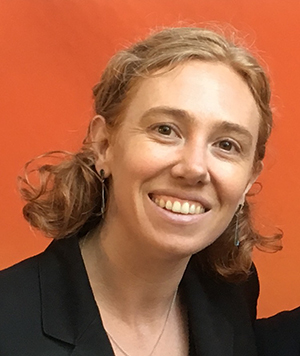LETTERS FROM BERLIN
★ ★ ★ ★
A middle-class vaccine tale

By Annie Mark-Westfall
I spent most of April on a planned break between jobs, harassing my husband M about returning to the U.S. for Covid vaccines. We watched in excitement as our home state opened vaccinations to everyone aged 16 or older; and then in consternation as Germany and the European Union paused the AstraZeneca vaccines, as the “Third Wave” overwhelmed hospitals and intensive care units.
My mother’s texts implored us to come “home,” get the shot, and give her a hug. M countered that Berlin is our home now; plus he found vaccine tourism to be morally repugnant. Both sides seemed right to me, and I agonized over the decision—and the guilt of the enormous privilege in having such a decision.
The moral question of returning to the U.S. for a vaccine dominated the conversation with my American friends. An interview with an ethics professor ended the debate; he declared that returning to the motherland for vaccination, if you are eligible under local rules, is acceptable. For me, this served as the final ruling on the matter.
When I gleefully brought this information to M, he reiterated that Berlin is our home now. Further, we were in the middle of some home renovations, utilizing the only window of free time that I had for such projects. M repeated a favorite line from some German politician, “The vaccination process will be like ketchup; slow at first, and then a large glob all at once.” He urged patience, assuring me that we would be vaccinated soon in Berlin.
Each night after M fell asleep, I stayed up googling flights to the U.S. and texting obsessively with my impatient American friends in Berlin. The Covid situation worsened in Germany. Each day, I pled my case to M, and then conceded. Without work to keep me busy, I meditated on the question, Am I just trading the opportunity to see my family and get vaccinated, for a nice home?
The home renovation factor was simply the latest iteration of the broader question that haunted me throughout the pandemic: Is giving up my extended family the cost of living the Berlin life that I want? Is this the life that I want, then?
This indecisiveness troubled me and frustrated my husband, endlessly. We agreed to punt the vaccine travel question to May 1. I am not sure if – like languishing – it is a symptom of the global pandemic; or perhaps broader decision fatigue in the age of information and optimization. Recently, I told my coach/therapist that my idea of luxury is going to a restaurant and having someone else order for me; but only if they know exactly what I want. Later, I stammered when she asked how often I want to meet with her. She responded by suggesting that decisiveness is something we might work on together.
Am I actually indecisive? I find it difficult to be decisive as a foreigner. Despite living in Berlin for five years now, I often feel like I am missing some context in most situations. This can be basic – like standing in line for 20 minutes before realizing you need to pull a ticket with a number on it. It can be fundamental – like hearing that friends were receiving vaccine invitations in the mail, and not knowing how to get myself on the list. Asking around revealed that the public insurance system would notify the administration responsible for vaccinations; yet my family has private insurance. No one seemed to know how to advise me.
In the final week of my vacation before my new job began, a friend texted me frantically, “Go to the U.S. Get the vaccine. My husband has Covid, and it’s not good.” Having been banned from discussing this option with my husband for another week, I started emailing doctors’ offices, asking to be vaccinated. Berlin had opened AstraZeneca vaccinations to any adult willing to take the clotting risk. M had said, in passing, that it probably was not a good idea for me to get the AstraZeneca vaccine.
On April 29th, my phone rang. “Hello, Mrs. Mark-Westfall, you wrote to our Praxis? You would like the AstraZeneca vaccine? Can you come tomorrow?” I froze, locking eyes with my husband, who did not know about my late-night emails or who was on the phone.
I learned from the March for Science that, as with most things in life, the human response to vaccinations is largely a bell curve. Some people will take any vaccine available without question; others will refuse all vaccines. In between these two extremes, is the larger portion of the population, which will have questions. Through this article, I learned that I am squarely in the “any vaccine available” category.
And so I took a deep breath and said ‘Yes’ to AstraZeneca, followed by, “Can my husband come, too?”
We got vaccinated on April 30th. M joked that the universe knew of our May 1 deadline, and that he could not handle another month of my handwringing over an impossible return to the U.S.
Two weeks later, our family Google calendar notified me that our Covid immunity had kicked in; there is no longer a risk that Covid will kill or hospitalize M or me. My vaccine high sustained itself for these entire two weeks; after almost 18 months of pandemic dread, the mental load is considerably lighter. I made plans to see friends at a playground the next day.
In decidedly American fashion, the friend brought other friends, who I do not know. (Germans do not casually expand invitations to friendly gatherings; a cultural element that I have grown to appreciate).
The unknown friends and I made polite conversation. Then, while my back was turned to feed my children their fourteenth snack, I heard the guy say, “Just don’t get AstraZeneca! As anyone who can actually read statistical data already knows.”
My brain involuntarily presented a movie-like visual of the emergency hatch opening on a flying airplane, with all its contents being violently sucked out through the hole—there went my good mood, confidence, relief. I kept my eyes fixed on the bag of dried mangos, blinking rapidly, steadying my breath. My brain scrolled through the familiar pages of its dogeared book of indecision: AstraZeneca is 100% effective against death; Christian Drosten said there are no second-rate vaccines. These half-hearted reassurances, of course, were the firewall against the real point. Should we have traveled home for Pfizer? Should I have said no to AstraZeneca? Did I make the wrong decision? And the conclusion: I knew when I saw his sweater, this guy was a jerk.
The guy’s comments reminded me of an article in the Atlantic about the appalling “vaccine culture” in the U.S., associating vaccine brand and socioeconomic class: Pfizer for the elite; Moderna for the middle class, and Johnson & Johnson for the incarcerated, homeless, and rural poor. Of course, calling a lifesaving vaccine “middle class” is the perfect insult in a nation that subscribes to the fantasy of trickle-down economics, and conflates financial success with morality.
These thoughts filled me with blinding rage, until my head hit the pillow, and I realized: I have made my decisions. I am raising my children in a nation built on democratic socialism, in a city led by the Social Democrats. I said ‘Yes’ to the vaccine that became available to me first, because that is the only way to bring this hellish pandemic to an end. The hammock chair in my new home office is the fantasy of my 20s, brought to life—but I paid for it in Euros, not in forfeited hugs from my mother. There is no either/or happening, and I need to accept that.
I spent the past eight years shifting my career, redirecting the boat toward Germany. My husband and I have built a family and close-knit community here in Berlin. There have been sacrifices, but none so stark as the separation from our extended family during the pandemic. Taking the AstraZeneca vaccine is a blessing, not a sacrifice.
Covid has upended everything. What I must not do, however, is give up on this life that we have meticulously built for ourselves in Berlin. The pandemic will end, and I can rebuild a normal life that allows me to see my family regularly. The sooner we drop the elitism and say yes to vaccines, the sooner this can happen.

Annie Mark-Westfall graduated from Kenyon College in Ohio. As a former Fulbright grantee and Robert Bosch Foundation fellow, she views herself as a cultural ambassador. Her day job is with an international conservation organization.
























Thank you!
Indeed. Vaccines are the answer. I was wondering which one I should get and decided, the first one available.
Enjoyable read Annie